-
Author
Lee Yonghun이용훈
-
Publisher
Changbi Publishers창비
-
Year Published
2022-06
-
Category
Poetry 시
-
Target User
Adult 성인
-
Period
Contemporary 현대
If you want to meet this book in your language, please vote!
-
No results.
Description 작품 소개
"Why’s it ‘dat all you lot say is work hard, work hard all day!"
Language that cuts into harsh realities of life,
its core revealed within the site of labor.
Meet Lee Yong-hoon's very first poetry collection.
Lee Yong-hoon, a rising poet acclaimed for his vivid sensibilities and sharp wit, recently released his first poetry collection Work Diary under the Changbi Publishing imprint. Four years after his debut, the poet delineates a vivid portrayal of the realities of the oft irrational and inhumane sites of labor, depicting the "painful beauty of reality" of working life, intertwined with poetry, as "a world where life and poetry are one" (Recommendation, Lee Young-ju). Drawing from his concrete experiences in various working-class spaces as a day laborer, outdoor carpenter, motel cleaner, airport baggage handler, attendant at a closed ward in a psychiatric hospital, janitor, and delivery driver, the poet makes a record of the deep cruelty of life. The poems, written in a straightforward manner with humor and linguistic play, showcase a new poetic technique distinct from traditional labor poetry. Including his debut work "Daelimsung Namaste," the collection features 67 poems without any additions.
At once built, at once demolished— a feeling common to all labor.
As evident from the short description of the poet’s life included in the collection, Lee Yong-hoon is unwaveringly ‘a laborer.' The poet portrays the reality of working-class struggles, of those floundering to avoid a “wasted life,” sometimes vivid to the point of misery, other times casually, like a joke tossed up without a care. While writing an ode to the struggle for survival, the poet neither criticizes vaguely the realities of labor, nor confines it to a romanticized tragedy. There are no slogans advocating for anything in the collection. From the "unbreakable, unwastable bottom" (Flour Cement") to the precarious life of "earning a day's wage and living a day" ("Work Diary") of the “day laborer ”(“Handy Man”), the collection portrays the harsh reality of life with simplicity. The poet portrays the brutal essence of modern society's labor which "grinds the body with sweat" ("Knowing through so and so") and the relentless exploitation and hardship of labor which renders "rebellion impossible" ("Hunting Season"). He gives voice to the voiceless, through their “gargles of cement” (“You, a foreign tongue”).
The poet, who has experienced many a 3D (dirty, difficult, and dangerous) job, where safety becomes an afterthought and dignity is destroyed. The absurdly harsh working environments depicted in the poems immediately bring to mind the recurring workplace accidents that appear on the television and then vanish. However, as one continues to read the poems, one realizes that the grim reality of labor portrayed is not limited to extreme situations of 'peripheral labor.' Whether it's the continual receipt of "conveyor instructions" and the “submission and silence” that “drags on and on” ("Alone at Costco Wholesale") or being trapped without finding an exit, akin to “roots rotten washed in melancholy"(“The stadium skies on the rooftop”) in a “closed ward," the poet candidly reveals the cruel essence of modern society's labor which thrives on surveillance and control. It stands atop our heart and declares “Oh, today___is built, oh today ___is demolished” (“What the cat dragged in”). Amidst a capitalist society's destructive production/consumption cycle where labor becomes a "show for dismantling" and laborers, who have “never experienced intactness” are consumed as tools for production ("A Show for Dismantling"), the poet, now reduced to the status of "a pebble rolling on a construction site" ("Your Foreign Language"), wonders, "How far down could I possibly fall?" ("Flanders Cat"), a lament echoed by all those embarking on their arduous commute today.
In reality, the poet does not distinguish between the working 'me' and 'you.' The sight of people working, whether quietly under harsh conditions or under the weight of necessity, bear a resemblance somehow, because of this, within the poems, various perspectives and voices blend together, and indistinct words create a cacophony, where we are unable to discern who is who. Even foreign laborers isolated by the “fence” of incomprehensible speech ("Grassland Wall") are simply referred to as “that one” like other colleagues, merely fulfilling the role of "a well-listening dog" ("Osan Starlex"). Anyone who works like a dog and becomes nameless, becomes 'us,' and everyone shares in the hardship. However, amidst the reality's pain and anguish, the poems, crafted with sincerity, “shine like life itself” (from the recommendation). The densely packed poems illuminate the world like rhythmic essays, like odes by news reporters covering the scene. Through the juxtaposition of the "ripples of sleep" of those swaying in the late-night subway, shaken by the hardships of life, and the "ripples of water" in the river ("Night Island"), the poet reveals the tumultuous essence of our lives, which would’ve been ultimately unbearable lest it wasn’t so beautiful.
Yet I continue to live, therefore I write.
At the threshold of life and death, the poet survives only in their “flesh and bones.” "No one ever told me there would be times when things are not okay, even when you think so" ("Namguro Station"), and "even with someone by your side, ultimately, you're alone" ("Point of Sight")—facing the bitter reality and uncertain future, the poet ponders over the "pettiness and resentment of being alive" ("I Starve"). In a bleak era where faith in the value of labor declines and the dignity of laborers is continually denied. Yet, despite the dwindling prospects of poetry in labor, the poet continues to write, tearfully or not, persisting in a field where it is hard to seek for a future. Believing that on the other side of this world filled with only "full and blossoming pain" ("Notice Board of Corpses"), there exists "another Earth," the poet, tirelessly consoles the “crumbling heart” and promises to stride forward to find the "glittering man-made stars" ("Omuamua"). On this path, the poet, with a resolute voice, delivers to us a thought: "Keep on living,” (“The Poet’s Words”) which echoes in our hearts as he walks along.
Reference
Support from Changbi Publishers, Inc.
Author Bio 작가 소개








There are no expectations.